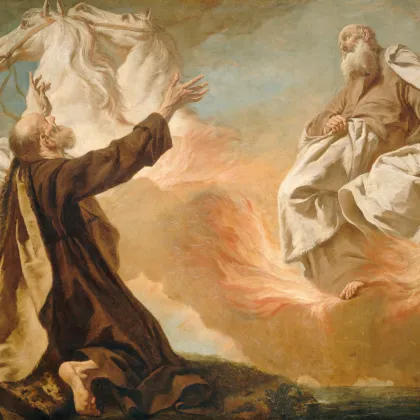The Prophecy of Malachi – Part 1: The Prophet of Christian Zionism

The Prophecy of Malachi – Part 1, The Prophet of Christian Zionism
The name Malachi [מלאכי] means my angel, or my messenger. The name is from the same exact form of the Hebrew words for the phrase my messenger [מלאכי] which we see in Malachi 3:1, where it says “Behold, I will send my messenger, and he shall prepare the way before me”, and Malachi himself is certainly the prophet and messenger of the angel, or messenger, which would later precede the Christ, and that messenger was John the Baptist. But the prophet Malachi does not tell us who his father was, nor does he inform us of his whereabouts, and does not tell us the name of the high priest or governor or ruler of the time that he wrote. Therefore his prophecy can only be very loosely dated from the circumstances which it describes.
For example, in chapter 3 where the prophet addresses the men of Jerusalem in his own time, we read “7 Even from the days of your fathers ye are gone away from mine ordinances, and have not kept them. Return unto me, and I will return unto you, saith the LORD of hosts.” Furthermore, in the opening chapter of the prophecy, in chapter 1 of Malachi, a reference is made to the laying waste of the heritage of Esau, from the viewpoint that it had already happened. During the greater portion of the time of the old kingdom of Judah, Edom was a vassal state, and therefore it was under the protection of Judah. It broke free for a time in the days of Jehoram, and was subjected anew by Amaziah (2 Chronicles 26). Then Edom revolted again in the time of Ahaz (2 Chronicles 28), just before Hezekiah became king. So the kingdom of Edom was fully intact until this time. In the Assyrian inscriptions, it is listed as a vassal state in the times of Esarhaddon and Ashurbanipal, which approaches the Babylonian period. The punishment of Edom is prophesied in Jeremiah chapters 25 and 49 and in Ezekiel chapters 25 and 32, which were written as the children of Judah were about to be taken into Babylonian captivity. It was in the period between the fall of Assyria and the time of Malachi that the mountains and heritage of Edom were laid waste, and the passage concerning “the days of your fathers” found in Malachi chapter 3 is a reference to the period before Jerusalem was destroyed.








 Please click here for our mailing list sign-up page.
Please click here for our mailing list sign-up page.







